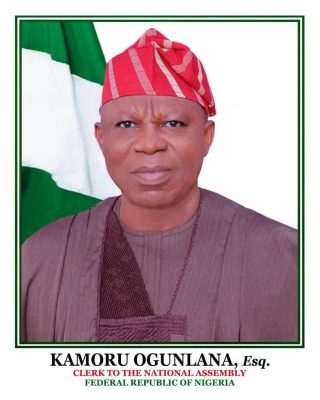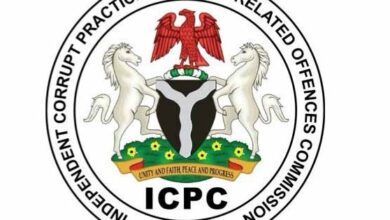Why National Assembly management established offices in six geopolitical zones — CNA |

The Clerk to the National Assembly (CNA), Kamoru Ogunlana, said that the management of the National Assembly established zonal offices in each of the geopolitical zones of the federation to make the services of the federal legislature accessible to the citizens.
Ogunlana disclosed this on Thursday in a keynote address he delivered at the training organised by the Policy and Legal Advocacy Centre.
The training, also supported by the UK Foreign, Commonwealth and Development Office, was for staff members of the offices of the Clerk and Deputy Clerk to the National Assembly.
He said that this was apart from funding and equipping constituency offices for each lawmaker, stressing that the idea was to foster collaboration and inclusivity through interface by management between lawmakers and various stakeholders and the public.


According to him: “Collaboration between lawmakers and their constituents and various stakeholders is essential in achieving legislative goals.
“Engagement with civil society, the executive, and other arms of government fosters inclusivity and strengthens the legislative governance framework.”
Ogunlana said that the National Assembly management was also committed to providing requisite support for lawmakers in their duties including research analysis and administrative support.
“This entails advising Presiding Officers and Chairmen of Committees, on parliamentary practice and procedure, taking and keeping records of parliamentary meetings and events, carrying out research on Bills and other legislative measures before the two Chambers, etc,” he stated.
On the implementation of procedure, the CNA stated: “The Management ensures adherence by advising lawmakers on legislative practice and procedure.
“It ensures that lawmakers observe parliamentary rules and procedures.
“By adhering to laid down rules, the Management promotes open governance which helps in building public trust and credibility of the National Assembly.”
Ogunlana said it was also the responsibility of National Assembly management to mediate in disputes and foster a collaborative environment among lawmakers and between lawmakers and the public.”
He added: “This involves representing the National Assembly in Court during litigation on Bills or Motions and participating in addressing protesters in the National Assembly complex with a view to addressing their concerns.”
He further listed the responsibilities of the National Assembly management, among several others, to include facilitating international engagement of lawmakers and staff members, and helping in the training of lawmakers and staff members from foreign parliaments who visit the National Assembly.
According to him: “The Management also represents the National Assembly and by extension Nigeria in the Inter-Parliamentary Union (IPU) conferences and other international fora for lawmakers and staff members.”
The CNA advised that as highlighted in the agenda for the training, the focus must be on enhancing staff members’ welfare, fostering teamwork, and ensuring the highest standards of professionalism in legislative service delivery.
Ogunlana said he was happy that the training was designed to equip participants with the skills and knowledge needed to contribute effectively to legislative governance.
He said: “We must also explore innovative ways to integrate technology into legislative procedures, ensuring that the National Assembly operates with the highest level of efficiency and responsiveness.
“This includes the use of digital tools for knowledge-sharing, communication, and legislative record-keeping, as well as embracing digital platforms for engaging the public in the legislative process and building resilient parliament.
“As we embark on this training, let us bear in mind the critical role each one of us plays in shaping the future of Nigeria’s legislative governance.
“It is through our collective efforts, commitment to excellence, and dedication to the principles of good governance that we can ensure the continued success of the National Assembly and the fulfilment of its constitutional duties.”
Ogunlana extended gratitude to PLAC and its Executive Director, Clement Nwankwo, a former Presidential Liaison Officer in the Senate; Senator Ita Enang; the Deputy Clerk to the National Assembly, Engineer Bashir Yero; UK Foreign, Commonwealth and Development Office; and all resource persons “whose invaluable contributions have been instrumental in organising this training”.
Post Views: 35





